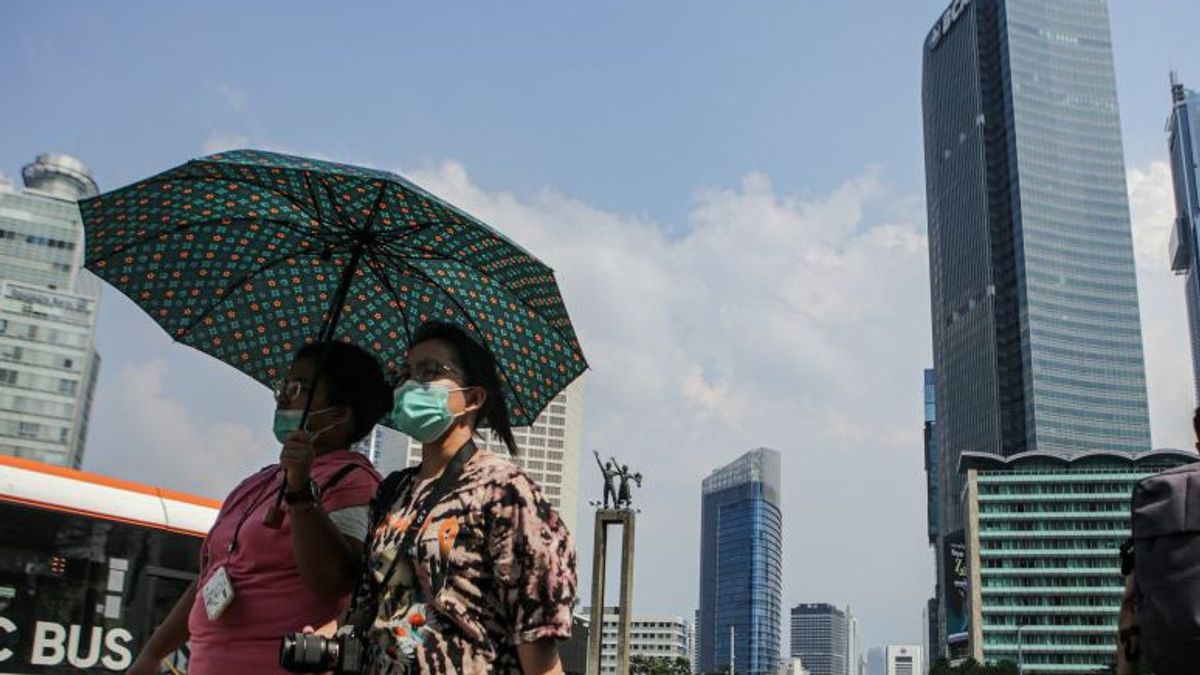
JAKARTA - This year, global warming and climate change are expected to continue as greenhouse gas emissions continue to increase despite various efforts to suppress it.
This opinion was put forward by the Deputy for Climatology of the Meteorology, Climatology and Geophysics Agency (BMKG) Ardhasena Sopaheliakan.
"Global warming hit a new record in 2023, surpassing 2016 records. 2024 is expected to be even hotter," Ardhasena said in Jakarta, reported by ANTARA, Saturday, January 20.
He argued that the combination of El Nino and climate change had triggered an increase in temperature in the second half of 2023.
According to him, the average annual global temperature in 2023 is around 1.45: 0.12 degrees Celsius is warmer than the pre-industrial level.
"Currently, the world is getting closer to the limits set in the Paris Agreement," he said, referring to the limit of increasing temperature.
The Paris Agreement, which has been adopted by nearly 200 countries, is primarily aimed at keeping the global average temperature rise below 2 degrees Celsius above pre-industrial levels and limiting temperature rise to no more than 1.5 degrees Celsius above pre-industrial levels.
Ardhasena cited a report by the World Meteorological Organization showing that by 2023 extreme heat conditions had had an impact on human health and sparked forest fires in various locations.
"The problem of global warming and climate change is a shared responsibility for every human being. Therefore, we need to strive to contain its progress and reduce its impact," he said.
관련 항목:
In line with efforts to limit the average temperature rise of the earth's surface below 1.5 degrees Celsius, the Indonesian government is trying to reduce greenhouse gas emissions by 29 percent with its own efforts and 41 percent with international support by 2030.
Efforts made to reduce greenhouse gas emissions include reducing deforestation and forest degradation rates, sustainable forest management, forest rehabilitation, peat and mangrove land management, and increasing biodiversity conservation.
In addition, the government seeks to reduce the use of fossil fuels, increase the use of new and renewable energy, improve waste and waste management, implement low-carbon agricultural systems, and reduce carbon emissions in the transportation sector.
The English, Chinese, Japanese, Arabic, and French versions are automatically generated by the AI. So there may still be inaccuracies in translating, please always see Indonesian as our main language. (system supported by DigitalSiber.id)










